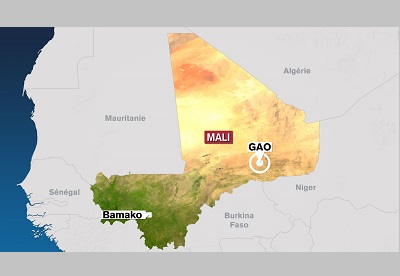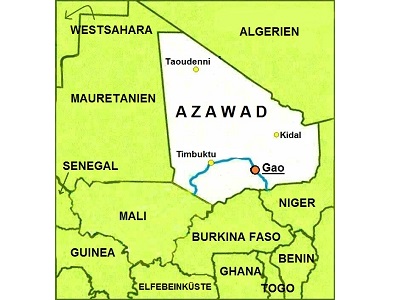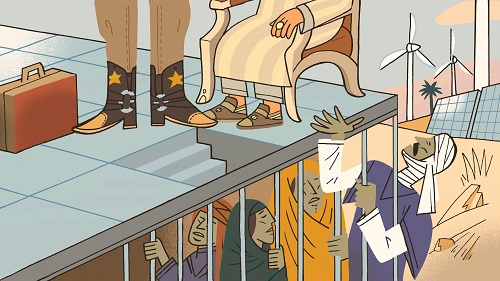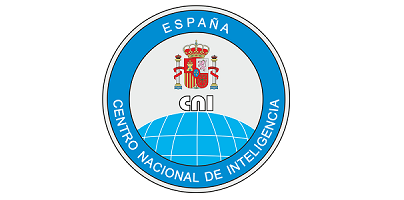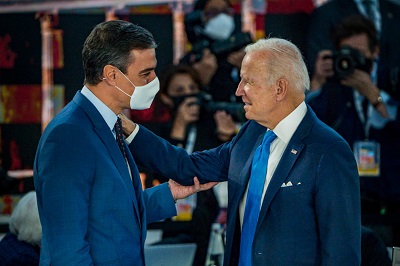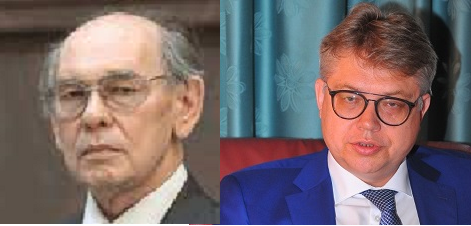Western Sahara, Spain, Morocco, Algeria, France, USA, Europe, NATO, neo-colonialism,
Jesus L. Garay
Member of Asociación de Amigos y Amigas de la RASD (Association of Friends of SADR)
We need all the strength of solidarity and all the democratic political will to stop this neo-colonialist coup, to dismantle the fallacious arguments of political expediency and false humanitarian compassion deployed by the PSOE and to launch an effective social and political mobilisation.
Three months after Morocco leaked Pedro Sánchez’s letter in which the Spanish government modified its formal position on the Western Sahara issue, the echoes of the reactions provoked by this turnaround, far from abating, continue to be at the forefront of political and media statements, this time in the wake of Algeria’s suspension of the friendship and cooperation treaty with Spain.
The Spanish government’s decision undoubtedly has many implications that would be impossible to cover briefly, just as it is impossible to deal with the multitude of blunders that have been and are being made in commenting on the various aspects of this issue.
Above all, the implications of the government’s position on the internal politics of the state have been commented on; but beyond generic statements and motions, if anything has become clear on this issue it is that the parties that make up or support this government are incapable – or perhaps simply have no real will – of reversing the decision to implicitly recognise Moroccan sovereignty over the Spanish colony. Equally, it seems that social organisations have not been able to channel the sympathy and solidarity that the Sahrawi cause arouses in the vast majority of the population into a clear expression of rejection or indignation. However, as Algeria’s decision shows, it is never too late to take the initiative.
However, Algeria’s latest decisions highlight a dimension that has been almost silenced by the noise caused by the forms and timing of the government’s decision. Indeed, at the international level, the declarations of support for the Moroccan occupation reveal that the decision is not the result of a simple ‘hot flash’ by Mr Sánchez, as some media outlets are trying to describe it – although there is clearly some improvisation – nor, as is being done especially on social networks, a simple surrender to Morocco’s brutal blackmail – which is also the case.
The Spanish government’s current position is the result of a far-reaching strategic effort to consolidate a balance of power in the Arab Maghreb that is definitely favourable to the neo-colonial interests of the capitalist West. This effort, initially led by the United States, as befits its status as a hegemonic power, found its ultimate expression in the declaration of an outgoing president, Donald Trump, accepting Morocco’s sovereignty over Western Sahara in exchange for the full restoration of relations between the Kingdom of Morocco and the state of Israel.
In the current international order, however, geopolitical control of this area of North Africa does not lie directly with the US, but with Europe. Not the Europe of rights and democratic values that they want to sell us, but the Europe of migratory necropolitics, a subsidiary of NATO and heir to the most recent colonialism, which in recent years has been sliding towards the ideological far right.
Many of the reactions of policy-makers to Algeria’s severing of relations with Spain demonstrate that, at bottom, Europe’s view of Africa has hardly changed since the Berlin conference of 1885 and, like the US with Latin America, it continues to treat the African continent as its backyard: a kind of huge estate from which to extract the resources necessary for its economic and social development and where African inhabitants and leaders should confine themselves to doing that job effectively.
The list of assassinations, coups d’état and military interventions to control independence movements or simply to « moderate » policies deemed potentially dangerous to Europe’s interests is not closed. France, the UK and Germany openly and clandestinely strive to condition the political and economic life of the peoples of Africa, because the direction of the European economy they lead largely depends on it.
Certainly, European neo-colonial practice is in open contradiction with the legal framework created after the Second World War, the so-called international legality, which is why, to a large extent, the interventions are of a « covert » type or simply silenced from public opinion. And yes, Spain, although it is the only European country that still has a recognised colony in Africa, Western Sahara, plays a marginal role in this endeavour. Like remaining in NATO, this is part of the price it had to pay in exchange for EU membership.
In this context, the Arab Maghreb has become one of the most obvious theatres of confrontation between neo-colonial interests and the rights of African peoples, with Western Sahara probably the most decisive battleground in this respect. If Morocco finally succeeds in appropriating the strategic territory of Western Sahara and controlling its assets, the West will have largely succeeded in balancing the main power in the region, which is currently Algeria.
The only problem is the resistance put up by the small Sahrawi people, using international law in their favour. Indeed, the Saharawi people, at least since the creation of the Polisario Front, have based the legitimacy of their struggle on international law. This has been an important asset in confronting colonialism and reaffirming their will to achieve the right to self-determination and independence. Thus, every time the neo-colonial forces have tried to justify or perpetuate their misdeeds, each and every international body and court has ratified the legitimacy of the Saharawi resistance and condemned colonial practices.
So-called international legality is, curiously enough, a creation of those who support the occupation of the territory, the plundering of its resources, and the attempt to annihilate the original population. That is, the political-economic group of governments and companies that finance and provide the means and weapons for the occupation of Western Sahara. In this lobby of death and plunder, Spanish governments and companies do have, for historical and geographical reasons, a prominent role.
It has been 50 years of an unstable balance between legitimacy and economic and geopolitical interests. It is a struggle in which neither side can be considered the definitive winner. Neo-colonialism has tried to make the Saharawi people surrender by bombing civilian refugees, mass disappearances, the invasion of settlers, the massive plundering of resources, all kinds of tactics to delay the implementation of UN resolutions, lies and silence, and the blatant support of Spain, France and the USA for the genocidal regime of Mohamed VI, but the Saharawi resistance continues, supported by international law. The sale of arms, the gigantic theft of phosphates and fish, the agricultural business with the King of Morocco, the fossil and green energy from Western Sahara exploited by companies such as Siemens-Gamesa, thus appear as facts that have been fulfilled but are impossible to justify or legalise.
The key to breaking this cruel stalemate could lie in a series of rulings by the European Court of Justice which, since 2016, have been narrowing the margin for these colonial practices to be carried out, by declaring the economic agreements with Morocco on which they are based to be null and void. Throughout 2023, it is expected that the highest European judicial instance will definitively resolve the dispute in favour of the Polisario Front’s arguments, which should lead the EU to rethink its relations with Morocco as a whole. Not only trade relations, but all issues affecting the territory of Western Sahara, which Morocco considers its own and which constitutes not only the Alawi kingdom’s main source of wealth, but, as we have explained, the only hope, both for Morocco and for Europe, of being able to confront its main rival on the Maghreb chessboard.
The Spanish government’s decision, therefore, would be part of a plan to impose the reality of the occupation through international political consensus, whatever the decision of the European courts. Building such a consensus in the European case requires the direct involvement of the two main governments, France and Germany, and, in the case of Western Sahara, the colonial power of reference, Spain – as would be Belgium in the case of the Republic of Congo or Portugal in the case of Mozambique. Once this « realpolitik » consensus has been built, it would be easy to bring together the majority of European governments – although perhaps not as easy as it has been in the case of the war in Ukraine – and, together with the United States, impose the law of the strongest in this corner of the world.
That is why we need all the strength of solidarity and all the democratic political will to stop this neo-colonialist coup, to dismantle the fallacious arguments of political expediency and false humanitarian compassion that the PSOE has deployed, and to launch an effective social and political mobilisation. Because it is not only the freedom and rights of an African people that are at stake, but also whether or not governments and companies can impose their will above the law, which they themselves claim to promote.
NAIZ, 10 juin 2022
#WesternSahara #Morocco #Spain #NATO #France #USA #Neocolonialism #Maghreb
